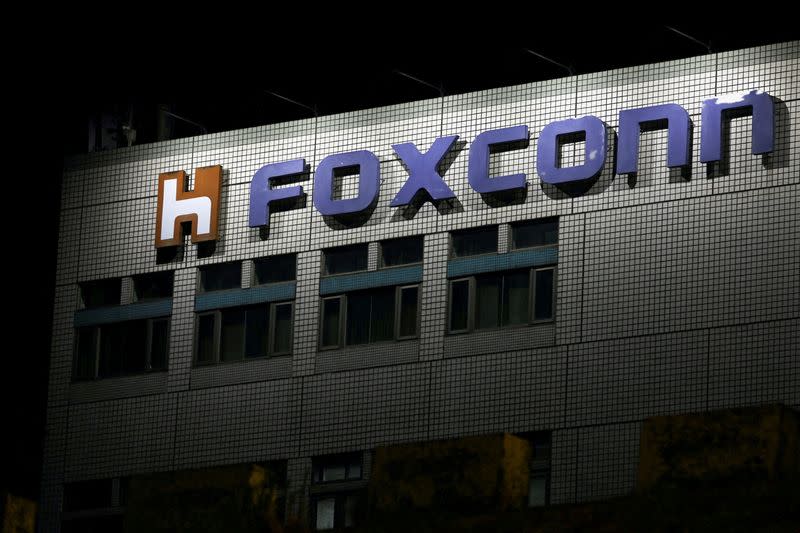Taiwanese electronics giant Foxconn said it was “committed to India” and planned to apply for the country’s chipmaking incentive scheme a day after quitting a $19.5 billion joint venture with Vedanta.
“Foxconn is working toward submitting an application,” the company said in a statement. “Foxconn is committed to India and sees the country successfully establishing a robust semiconductor manufacturing ecosystem.”
India’s $10-billion chip-subsidy plan, dubbed “Modified Programme for Semiconductors and Display Fab Ecosystem”, offering financial incentives of up to 50% of capital costs for semiconductor and display manufacturing projects.
Also on AF: Taiwan’s Foxconn Pulls Out of $19bn Vedanta India Chip JV
Foxconn’s withdrawal from the Vedanta JV was largely seen as a setback for Indian prime minister Narendra Modi’s ambitions of luring foreign investors to make chips in the country for the first time.
Modi has made chipmaking a top priority for India’s economic strategy in pursuit of a “new era” in electronics manufacturing.
Explaining its breakup with Vedanta, Foxconn said on Tuesday “there was recognition from both sides that the project was not moving fast enough” and there were other “challenging gaps we were not able to smoothly overcome”, without sharing more details.
“This is not a negative,” Foxconn said in the statement.
Slow moves, high debt
The Vedanta-Foxconn joint venture was among three applicants for the Indian government’s incentives plan last year. The companies intended to set up semiconductor and display production plants in Gujarat state.
Concerns about incentive approval delays by India’s government aided Foxconn’s decision to pull out of the venture, a source familiar with the matter said.
The JV was proceeding slowly as Vedanta-Foxconn had got on board European chipmaker STMicroelectronics for licensing technology, but India’s government wanted the European chipmaker to have a bigger role, such as taking a stake in the tie-up.
Sources also said the Indian government and Foxconn had concerns over Vedanta’s financial situation. The conglomerate’s London-based parent, Vedanta Resources, has been plagued by a rising debt pile.
Credit ratings agency Moody’s downgraded its rating on Vedanta in March citing refinancing risks for debt maturities. There were also concerns about risks of a debt default.
The conglomerate’s chairman Anil Agarwal said there have been no debt defaults by the group. Vedanta’s gross debt stood at $6.8 billion as of the end of April, after the company completed 75% of its debt reduction commitment.
The Securities and Exchange Board of India (SEBI), the country’s market regulator, had also imposed a 3-million-rupee ($36,430) fine nearly two weeks ago on Vedanta for disclosure requirement violations regarding the Foxconn venture.
S&P Global Ratings said that Vedanta’s planned semiconductor business does not increase immediate liquidity pressure, adding that it believes there is no immediate sizeable funding commitment for the semiconductor project, pending government approval.
‘Will find other partners’
Foxconn is in active talks with several local and international partners to build up semiconductor production in India using mature chip manufacturing technology for products including electric vehicles, a person with direct knowledge of the matter said.
“The company will continue to be there, just that it will find other partners,” the person said.
The Indian government has said Foxconn’s decision had “no impact” on India’s plans. Both companies were “valued investors” in the country, it added.
Foxconn’s Taipei listed shares closed up 0.5% on Tuesday, underperforming the broader market which ended up 1.5%. Vedanta Ltd shares fell as much as 2.6% in Mumbai, before paring some losses.
- Reuters, with additional editing by Vishakha Saxena
Also read:
Foxconn Accused as EV-Maker Lordstown Files for Bankruptcy
Vedanta Picks Modi’s State for $20bn India Chips Plant
Apple Supplier Foxconn to Spend $500m on Plants in India
India Approves $968 Million Investment From Foxconn Unit
Indian Red Tape Delays Over $2-Billion Drone Purchase From US
























